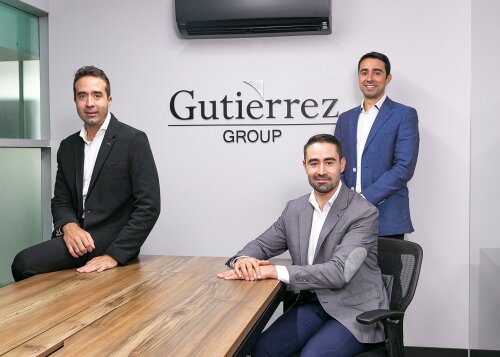Best Admiralty & Maritime Lawyers in Bogota
Share your needs with us, get contacted by law firms.
Free. Takes 2 min.
List of the best lawyers in Bogota, Colombia
About Admiralty & Maritime Law in Bogota, Colombia
Admiralty & maritime law, also known as naval law, governs shipping, navigation, commerce, towage, and marine insurance, among other maritime activities. In Colombia, although the country has extensive coastlines and major ports on both the Caribbean and Pacific, Bogota stands out as the central hub for government agencies, regulatory bodies, and law firms specializing in this practice area. Much of the legal and regulatory work for Colombia’s maritime industry is coordinated from Bogota, making the city a critical location despite its inland geography.
Why You May Need a Lawyer
Navigating Colombia’s complex maritime sector often requires specialized legal guidance. You may need a lawyer in a variety of situations, including but not limited to:
- Drafting, negotiating, or reviewing contracts related to shipping, vessel financing, or insurance
- Dealing with vessel registration and flagging under Colombian law
- Addressing claims regarding cargo loss, damage, or delays in transport
- Handling disputes involving collisions, salvage, or environmental incidents
- Interfacing with regulatory agencies for permits, compliance, or licensing issues
- Resolving labor or crew employment disputes onboard vessels
- Managing arrest or judicial seizure of ships due to unpaid debts or maritime liens
- Responding to investigations concerning customs, smuggling, or illegal fishing
- Navigating marine insurance claims and disputes
- Advising foreign companies on operating Colombian flagged or foreign vessels in Colombian waters
Local Laws Overview
Colombian maritime law draws from international conventions, especially under the International Maritime Organization (IMO), as well as national legislation such as the Colombian Maritime Code (Código de Comercio Marítimo) and the Commercial Code. The key regulatory bodies based in Bogota include the General Maritime Directorate (Dirección General Marítima – DIMAR) and the Superintendency of Transport (Superintendencia de Transporte), which oversee vessel registration, safety, port operations, and compliance.
Colombia is a party to various international marine conventions, including those governing marine pollution, cargo liability, and crew welfare. In cases of dispute, Colombian civil and commercial courts have jurisdiction, but international arbitration is common in major shipping contracts. Notably, maritime crimes and administrative procedures are also handled by specific bodies in Bogota, ensuring centralized governance.
Frequently Asked Questions
What laws regulate maritime activity in Colombia?
Maritime activity in Colombia is mainly regulated by the Colombian Maritime Code, relevant sections of the Commercial Code, and international treaties adopted by Colombia. Implementation and regulation are handled by bodies such as DIMAR.
Can foreign vessels operate in Colombian waters?
Yes, but they must comply with Colombian entry requirements, including inspections and clearances administered by DIMAR and customs authorities. Operating commercially may require additional permits.
How is vessel registration handled?
Vessel registration is overseen by DIMAR in Bogota. Both national and foreign vessels can be registered under the Colombian flag if they meet the necessary legal and technical requirements.
Who is responsible for marine accidents or cargo loss?
Responsibility for such incidents depends on contracts, bills of lading, insurance coverage, and the specific circumstances of the incident. Colombian courts or arbitration typically resolve disputes when liability is in question.
What are maritime liens and ship arrests?
A maritime lien is a privileged claim against a vessel typically arising from unpaid debts or damages. Courts in Colombia can order the arrest or judicial seizure of ships until disputes are settled or debts are paid.
How are labor disputes handled for seafarers?
Colombian labor law, supplemented by international conventions, applies to seafarers under Colombian contracts. Disputes can be settled through labor courts or arbitration as stipulated in employment agreements.
What role does DIMAR play in maritime affairs?
DIMAR is the principal maritime authority in Colombia. It regulates vessel registration, navigation safety, marine environmental protection, and licensing of maritime operators, with its main offices in Bogota.
Is marine insurance mandatory in Colombia?
While not always legally mandatory, marine insurance is highly recommended for vessel owners and cargo operators due to risks of loss, damage, and liability. Many commercial contracts require it.
How are environmental regulations enforced?
Colombian law, in line with international agreements, strictly regulates marine pollution and hazardous cargo. Environmental permits and compliance procedures are managed centrally, often involving agencies based in Bogota.
Can legal disputes be resolved through arbitration?
Yes, many shipping contracts in Colombia allow for dispute resolution through arbitration, either locally or internationally, subject to the agreement of the parties involved.
Additional Resources
If you need more information about admiralty and maritime matters in Colombia, consider contacting or researching the following organizations:
- General Maritime Directorate (Dirección General Marítima - DIMAR) - National maritime authority responsible for enforcement and maritime administration
- Superintendency of Transport (Superintendencia de Transporte) - Oversight of transport and logistical matters, including ports
- Colombian Ministry of Transport (Ministerio de Transporte) - Policy and regulation of transportation, including maritime
- Chamber of Shipping (Cámara Marítima de Colombia) - Industry organization supporting shipping and logistics
- Colombian Attorneys specializing in admiralty and maritime law, often found in prominent Bogota law firms
- International Maritime Organization (IMO) - For international maritime conventions affecting Colombia
Next Steps
If you find yourself needing legal assistance in admiralty and maritime law in Bogota, Colombia, start by gathering all relevant documentation - such as contracts, permits, inspection records, and correspondence. Identify the nature of your issue, whether it concerns compliance, disputes, permits, labor, insurance, or contracts.
Contact a qualified lawyer or law firm in Bogota specializing in maritime matters. Many firms offer initial consultations to understand your case and recommend the most appropriate course of action. Be sure to check the lawyer's credentials and experience in maritime law, and clarify fees and timelines up front. For some administrative issues, you might also approach DIMAR or relevant government authorities directly - but for disputes or complex legal matters, professional representation is strongly advised.
Taking prompt, informed action will help protect your interests and ensure full compliance with local laws and international maritime standards.
Lawzana helps you find the best lawyers and law firms in Bogota through a curated and pre-screened list of qualified legal professionals. Our platform offers rankings and detailed profiles of attorneys and law firms, allowing you to compare based on practice areas, including Admiralty & Maritime, experience, and client feedback.
Each profile includes a description of the firm's areas of practice, client reviews, team members and partners, year of establishment, spoken languages, office locations, contact information, social media presence, and any published articles or resources. Most firms on our platform speak English and are experienced in both local and international legal matters.
Get a quote from top-rated law firms in Bogota, Colombia — quickly, securely, and without unnecessary hassle.
Disclaimer:
The information provided on this page is for general informational purposes only and does not constitute legal advice. While we strive to ensure the accuracy and relevance of the content, legal information may change over time, and interpretations of the law can vary. You should always consult with a qualified legal professional for advice specific to your situation.
We disclaim all liability for actions taken or not taken based on the content of this page. If you believe any information is incorrect or outdated, please contact us, and we will review and update it where appropriate.
















